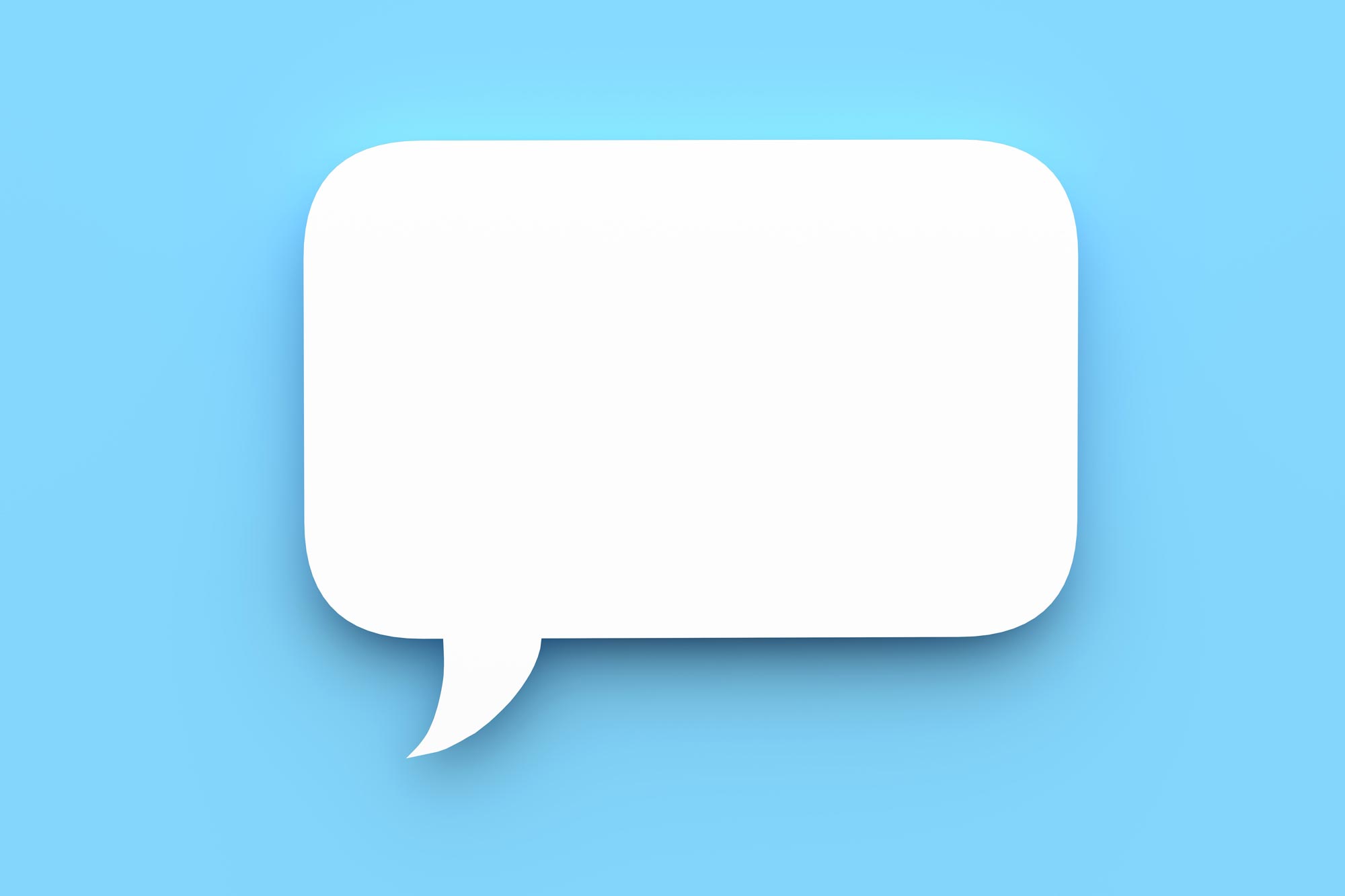Importantly, dialogue is not debate – it’s not about constructing the best argument to change someone’s mind. True deliberative dialogue, Wahl says, is a reasoned discussion about a political issue where both participants are genuinely seeking to better understand each other’s perspective.
In her quest to explore the impact of dialogue, Wahl has studied conversations between Republicans and Democrats, police and communities of color, and people with opposing religious beliefs. In one recent project, she observed dialogues between politically conservative Christian students and secular liberal students, then interviewed those students after their dialogue sessions in 2017 and then again three years later in 2020.
Wahl is now writing a book examining what happens when people try to talk with people whom they oppose politically and why the choice to engage in these conversations is itself so contentious.
In 2019, Wahl shared her insights on dialogue across the political divide in college environments. Now, as a new presidential administration begins, we caught up with Wahl to talk about the role that political dialogue could play in 2021 to help us all move forward following a bitter and divisive election, racial injustice and a global pandemic.
Q. How has the landscape for political dialogue changed in the last year and a half?
A. It is harder. The struggle over the election is a reflection of how little legitimacy the other side holds. I see this in my interviews. When I was interviewing students in 2020, with whom I had first spoken after their dialogue participation in 2017, a number of them said, “I don’t think I would walk into that room and talk to people on the other side today.”
Q. What are some common misconceptions about engaging in dialogue – what it can and cannot accomplish?
A. There are two common concerns. First, people worry that if they talk to somebody on the other side, they will legitimize the other person’s views and actions. People worry that these conversations could blur important moral lines. I have also had that concern.
But I find that, in fact, the opposite tends to happen. These conversations tend to reveal the nature of what divides us. Otherwise, we tend to assume that the other side is motivated in bad faith – either by malice, or ignorance, or irrationality. And sometimes, that might be true. Dialogue does not presume that someone is motivated by concerns that you will find legitimate. Dialogue is a way to find out if that is the case.
What people often learn is that there’s actually an ethical difference. There’s a divide in conceptions of what is good – what’s good for people, what’s good for society. Understanding the nature of what divides us does not legitimize the views of the other side. It clarifies what is at stake.
The second worry is that these conversations are pointless if we cannot persuade the other person. But there is surprising value in listening and trying to understand someone. I have found through my interviews years after dialogue sessions that some people begin to question their own views over time, prompted by the earnest questions of others.
But even when people do not question themselves, they do remember the conversation as a time when someone on the other side treated them with respect.
When I interview people who participated in these dialogues, they will say things like, “I’m embarrassed to admit that I really thought the other side was motivated by hate. But when I was talking to this person, I realized that they have this idea that I can see is motivated by a desire for human flourishing, for justice. And I don’t agree with it – I’m not persuaded – but I can see that that’s where it’s coming from.”
Dialogue does not solve pressing issues of injustice. It is not intended to do that. We still desperately need other tools of democracy that apply pressure, such as through protest and lawsuits. However, realizing the moral legitimacy of at least some people on the other side may make it less likely that the person will support violence against political opponents. And it may also make it more likely that they will see others as playing a legitimate role in our democracy.
Q. In your interviews with people years after they participated in dialogues, do you see any lasting impacts?
A. Yes. In the short term, the most common response is to recognize the complexity of other people and their concerns. This may make it less likely that people believe conspiracy theories about each other that delegitimize democratic participation.
Long-term, some people who were asked well-intentioned questions became more reflective, with significant political implications. For example, one girl who voted for Trump in 2016 and then went to a dialogue event said that she was asked the question, “If you say you believe this, then why did you vote like that?” Ever since that dialogue session, she’s been asking herself that question. In 2020, she was not sure that she could vote for Trump again. Another student said, “I realized at that conversation that I didn’t actually have reasons. And I want to be a person who has reasons.” That started to be a process of self-reflection for him and he changed his vote in 2020.
Nobody changes their principles. Nobody says, “Well, I was committed to racial equity, but now I see that’s not so important.” That doesn’t happen. It’s more, over the years, that some people come to decide that voting a certain way might actually be a better expression of their principles.
Some people don’t remember anything that was talked about three years ago in their dialogue sessions. They barely remember the event. But what they do tend to remember is that the other side treated them with kindness and respect.
For example, one conservative Catholic student said that he really didn’t remember what was talked about, but during the Supreme Court hearings for Amy Coney Barrett, he remembered that he had talked to these students who were pro-choice and that they were really thoughtful.
Nobody is weakening their commitments, but they gain the sense that people on the other side are human beings who deserve to participate in our democracy.
Q. If someone is interested in opening up a deliberative dialogue, how would you advise them?
A. First, it is important to be curious. Ask questions and listen to the answers. People are unlikely to listen unless they themselves feel heard. Listen, take it slow, breathe deeply.
We do not need to be so careful that we smile and nod to everything and avoid anything difficult. But people will become defensive if they feel attacked and will likely stop listening. The aim is to open up a space of questioning in which you’re interested in them as a person and in which their dignity is not in question. This is the kind of space that allows people to start questioning themselves over time.
There are also times when it is important to have persuasive arguments. To be able to say, “This is what I believe and why.” People tend to be curious about you when you’re curious about them. And that might be the moment in which they are most open, after they have been heard.
Q. What about people whose views are absolutely abhorrent to you? Is it possible to have a dialogue? Is it reasonable?
A. Nobody “should” talk to anyone. My suggestions are for people who actually want to talk to a politically opposed friend or family member, but worry that the conversation is futile. I am not suggesting that anyone reach out to people by whom they are threatened.
I’m often asked whether we should talk to neo-Nazis. There are a lot of different ways of answering that question. If we want to diminish the chances that this person will continue to be radicalized or be further radicalized, it probably is a good idea to have understanding-oriented conversations with that person in which their dignity is not threatened, in which we are genuinely trying to understand.
But those conversations can be reserved for people who feel called to them – people who feel a genuine desire to engage in that way and for whom the opportunity presents itself.
A conversation in which you learn that the other person is motivated by what you consider to be hate can lead in many directions. One could attempt to understand the fear and genuine concern beneath the hate. That understanding may support the advancement of justice in the long run, if we can understand the fear that prompts hate and find better ways to address these concerns. And conversations are different from giving that person a public platform to spread hateful ideologies.
But it is also OK to end the conversation. Because if you end up talking to somebody who genuinely seems to be motivated from malice, then the conversation reveals that. It doesn’t legitimize the malice.
Q. You’ve said that dialogue works best when people want to understand each other. How do we find or create opportunities for open and constructive dialogue in our current context?
A. I think it’s very difficult if you genuinely don’t know anybody who voted differently than you in the election, and that can be true for many of us. I think, in that situation, it can be worthwhile to seek out sources that reveal those other perspectives. Websites like reddit have forums like “ask a conservative” and “ask a liberal.” These are not substitutes for conversation, but they can reveal other perspectives and show the fears, loves and ideas that can drive people.
So maybe you think the person’s conclusions are ridiculous; maybe you think the evidence they offer is spurious; maybe you think their sources are illegitimate – and that’s fine. But try to really listen to what they are worried about. What is the source of their fear? What is their vision of the good?
- Rachel Wahl
For people who do have friends and family who think differently from them, first of all, it’s a judgment call. The political good is not the only good in our lives. Sometimes in order to save the relationship, it might be better not to talk about politics. But I think for relationships in which it feels a little bit safer – attempting to understand what somebody is afraid of and concerned about, and what good they are trying to achieve, can go a long way both toward making the other person feel less alienated and therefore less potentially violent, and to a politics that might have a chance of taking into account the actual interests and needs of people outside of our own group.
So maybe you think the person’s conclusions are ridiculous; maybe you think the evidence they offer is spurious; maybe you think their sources are illegitimate – and that’s fine. But try to really listen to what they are worried about. What is the source of their fear? What is their vision of the good?
Q. How can a person know that they’re personally ready and in the right mindset to have a political dialogue?
A. You have to recognize your own emotional temperature. There are some issues that I cannot have a conversation about, even with people who agree with me, without feeling like I can’t hold it together, honestly. I can’t have a conversation that is connected to my sense of wisdom and compassion and perspective. The stakes are so high. So I would not seek those out. There are other topics around which my curiosity is able to lead.
That does not mean, though, that I don’t seek out understanding on the other topics that I care so much about – I actually have a desperate desire to understand how somebody could hold opposing positions in those areas. But I may be more likely to try to learn about others’ views on those issues through reading or talking with people who have had those conversations.
Q. What are your hopes for what dialogue can help us accomplish in 2021?
A. My hope is that we continue to listen enough to the motivating concerns of the other side, so that we advocate for the current administration to address them – not necessarily through some kind of centrist politics that tries to identify a safe middle; possibly through what might be considered radical policies and approaches – but so that we do not simply ignore the urgent driving concerns of people who are upset about Biden’s win and those who do not trust our election. That we have enough conversations so that we can, again, recognize the moral legitimacy of other human beings so that we don’t support violence, so that we don’t see more contested elections, and so forth.
And I say all of that selfishly, because it’s in my interest for people who vote differently than me to have faith in the legitimacy of democracy. It’s in everybody’s interest.











